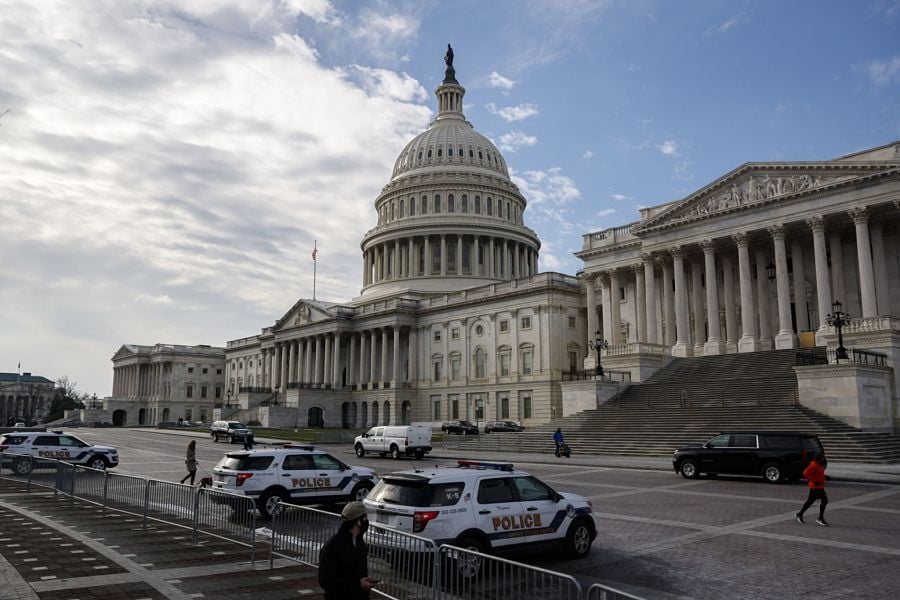

The divisive, violent politics that spurred the U.S. Capital riots last week is apparently spilling into the financial advice industry as firms that are home to thousands of registered reps and financial advisers are backing away from political donations.
The firms that are temporarily halting or rethinking how they donate money to politicians via PACs, or political action committees, are some of the most prominent platforms for financial advisers and registered reps, including: Bank of America Corp., Morgan Stanley, Charles Schwab Corp., JPMorgan Chase & Co. and Goldman Sachs Group Inc.
Last week's riots at the U.S. Capitol occurred as Congress was tallying the electoral college votes for President-elect Joseph Biden, who will be sworn in as the forty-sixth U.S. President on January 20.
Corporate America appears to be drawing a distinction between two types of politicians: those who did not vote for Biden during the largely ceremonial process and all other members of Congress.
[LISTEN: Bob Doll’s 2021 Prediction Special]
The first group, the congressmen and senators who voted against the certification of the presidential election, are staunch supporters of President Donald J. Trump, who has spent weeks making charges that the November election was a fraud.
Morgan Stanley, for example, is suspending PAC contributions to members of Congress who did not vote to certify results of the Electoral College for Biden and Vice President-elect Kamala Harris, a spokesperson said. And Bank of America, which owns Merrill Lynch, will take into consideration the U.S. Capitol riots when it doles out money to politicians in 2022, a spokesperson said.
"In the next election cycle the PAC will review its decision making criteria in light of the actions that contributed to the appalling violent assault on the U.S. Capitol," spokesperson Bill Halldin wrote in an email.
Likewise, Goldman Sachs, which is pushing its way steadily into the retail financial advice industry, is "pausing our donations to elected officials and plan to conduct a thorough assessment of how people acted during this period," according to spokesperson Patrick Scanlan.
JPMorgan is pausing all contributions from its PAC for six months.
"The terrible events from the last week have prompted us to pause and re-evaluate our PAC giving strategies to ensure we are supporting candidates that share our commitment to diversity, inclusivity and a strong economy for all," spokesperson Patricia Wexler wrote in an email.
"We believe participating in the political process is essential, and fully intend to continue to support our PAC moving forward — but it will look different," she added.
And the Schwab PAC is halting contributions to all lawmakers for the rest of the year. "This pause will give the firm an opportunity to evaluate the best path forward to fulfill our long-standing commitment to advocate on behalf of individual investors and those who serve them," the company said in a statement.
In a statement on his LinkedIn profile, Schwab CEO Walt Bettinger said: "Violence, takeovers or intimidation are never the answer to challenges or issues facing us as individuals or as a nation."

Driven by robust transaction activity amid market turbulence and increased focus on billion-dollar plus targets, Echelon Partners expects another all-time high in 2025.

The looming threat of federal funding cuts to state and local governments has lawmakers weighing a levy that was phased out in 1981.

The fintech firms' new tools and integrations address pain points in overseeing investment lineups, account monitoring, and more.

Canadian stocks are on a roll in 2025 as the country prepares to name a new Prime Minister.

Carson is expanding one of its relationships in Florida while Lido Advisors adds an $870 million practice in Silicon Valley.
RIAs face rising regulatory pressure in 2025. Forward-looking firms are responding with embedded technology, not more paperwork.
As inheritances are set to reshape client portfolios and next-gen heirs demand digital-first experiences, firms are retooling their wealth tech stacks and succession models in real time.
